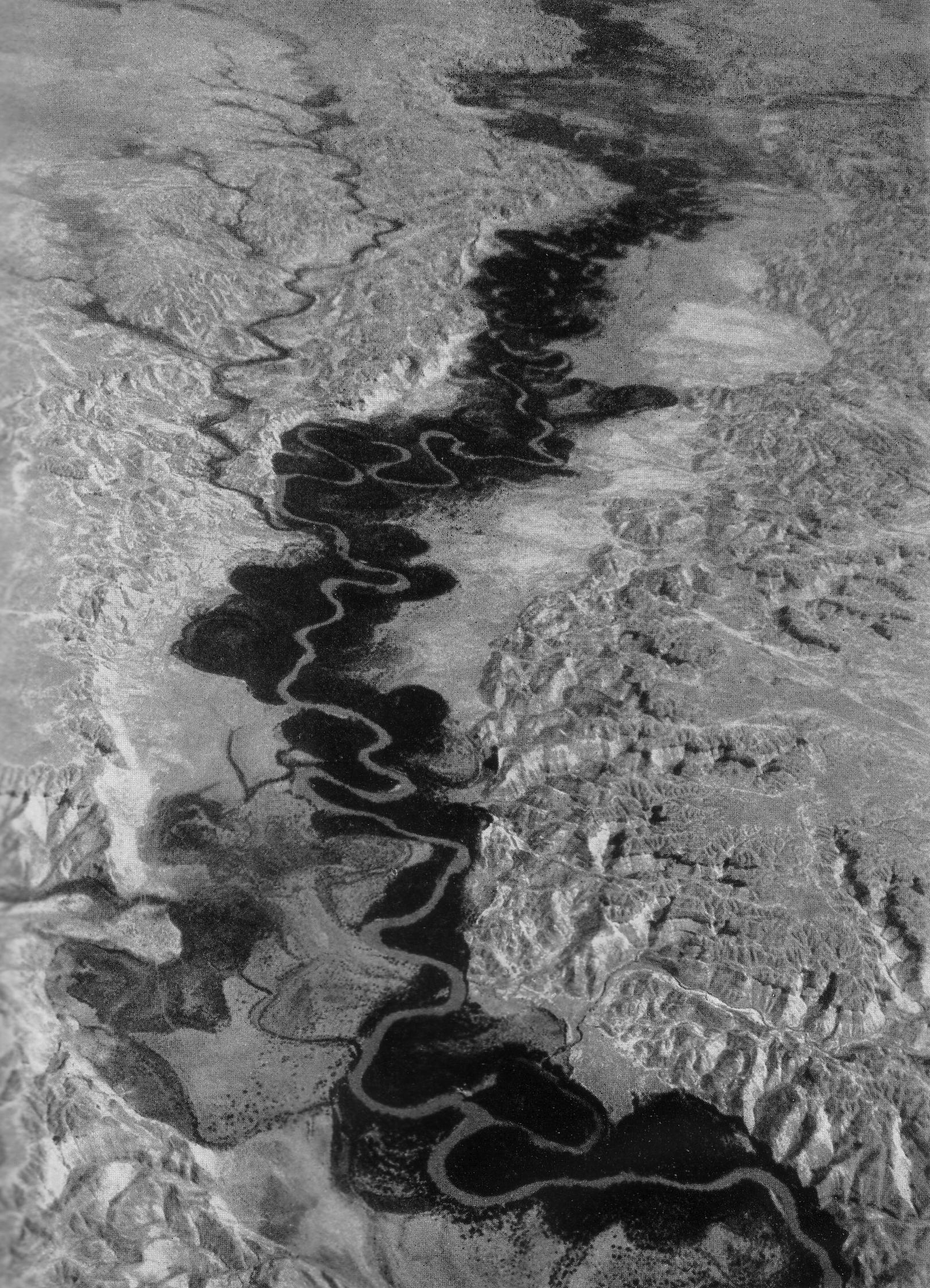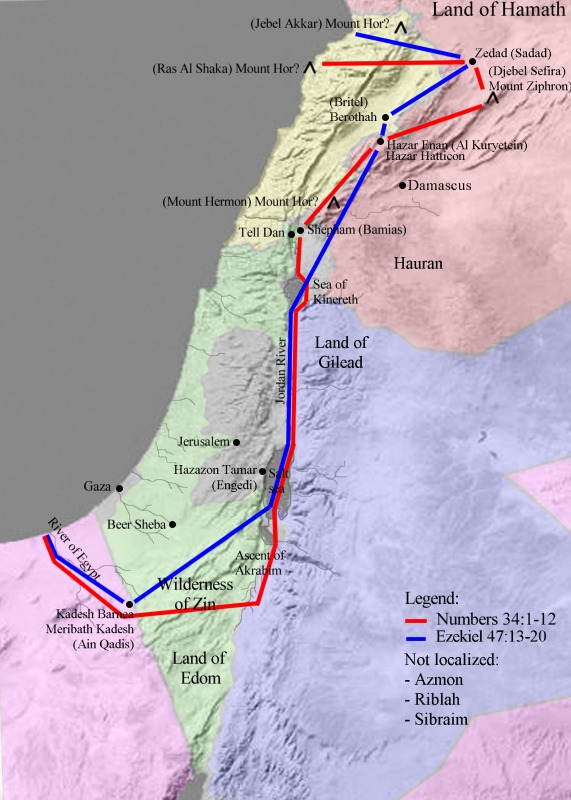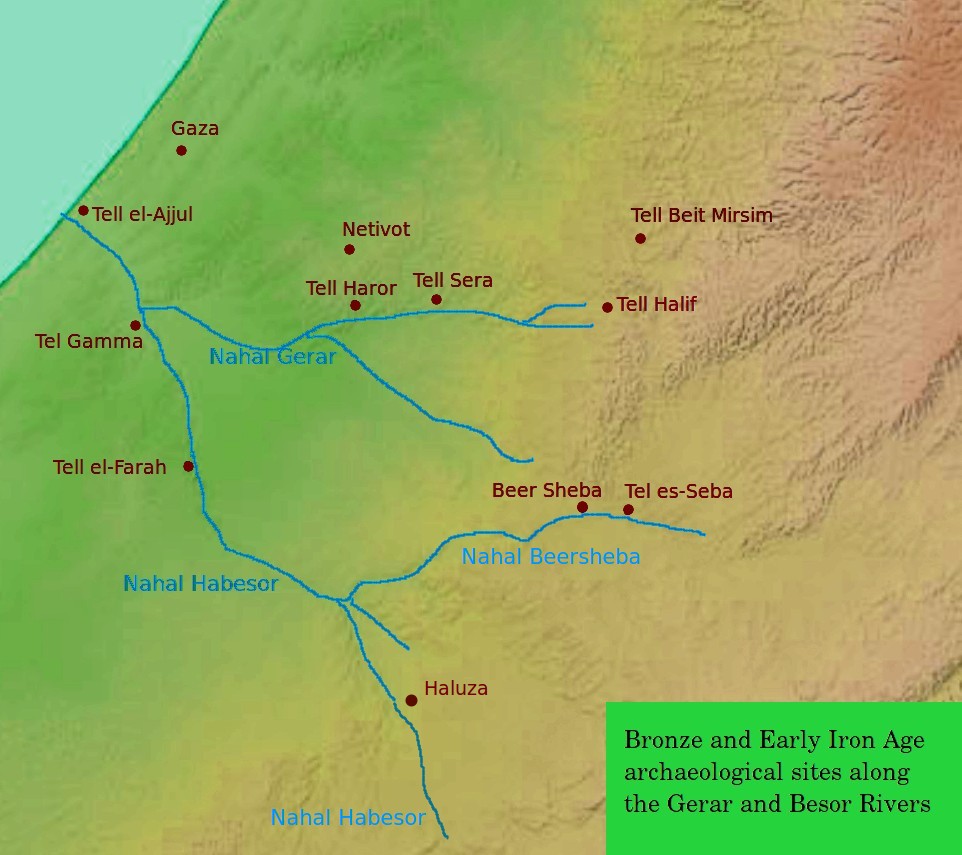|
Cities Of Refuge
The cities of refuge ( ''‘ārê ha-miqlāṭ'') were six Levitical towns in the Kingdom of Israel and the Kingdom of Judah in which the perpetrators of accidental manslaughter could claim the right of asylum. Maimonides, invoking talmudic literature, expands the city of refuge count to all 48 Levitical cities. Outside of these cities, blood vengeance against such perpetrators was allowed by law. The Bible names the six cities as being cities of refuge: Golan, Ramoth, and Bosor, on the east (left bank) of the Jordan River, and Kedesh, Shechem, and Hebron on the western (right) side. Biblical regulations In Numbers In the Book of Numbers, the laws concerning the cities of refuge state that, once he had claimed asylum, a perpetrator had to be taken from the city and put on trial; if the trial found that the perpetrator was innocent of murder, then the perpetrator had to be returned under guard (for their own protection) to the city in which they had claimed asylum. This law co ... [...More Info...] [...Related Items...] OR: [Wikipedia] [Google] [Baidu] |
Foster Story OTB 173 FleeingToTheCityOfRefuge
Foster may refer to: People * Foster (surname) * Foster Brooks (1912–2001), American actor * Foster Moreau (born 1997), American football player * Foster Sarell (born 1998), American football player * John Foster Dulles (1888–1959), American diplomat and politician * Sterling Foster Black (1924–1996), American lawyer * Jodie Foster (1962-), American actor Places ;Australia * Foster, Victoria ;Canada * Foster, Quebec, a village, now part of the town of Broke Lake ;United Kingdom * Foster Mill, in Cambridge, England ;United States * Foster (CTA), elevated transit station in Evanston, Illinois, USA * Foster, California (other) ** Foster, San Diego County, California * Foster, Indiana * Foster, Kentucky * Foster, Washtenaw County, Michigan * Foster, Minnesota * Foster, Missouri * Foster, Nebraska * Foster, Oklahoma * Foster, Oregon * Foster, Rhode Island * Foster Township, Michigan * Foster, Wisconsin (other) ** Foster, Clark County, Wisconsin, a town ** F ... [...More Info...] [...Related Items...] OR: [Wikipedia] [Google] [Baidu] |
Jordan River
The Jordan River or River Jordan ( ar, نَهْر الْأُرْدُنّ, ''Nahr al-ʾUrdunn'', he, נְהַר הַיַּרְדֵּן, ''Nəhar hayYardēn''; syc, ܢܗܪܐ ܕܝܘܪܕܢܢ ''Nahrāʾ Yurdnan''), also known as ''Nahr Al-Sharieat'' ( ar, نهر الشريعة), is a river in the Middle East that flows roughly north to south through the Sea of Galilee (Hebrew: כנרת Kinneret, Arabic: Bohayrat Tabaraya, meaning Lake of Tiberias) and on to the Dead Sea. Jordan and the Golan Heights border the river to the east, while the West Bank and Israel lie to its west. Both Jordan and the West Bank take their names from the river. The river holds major significance in Judaism and Christianity. According to the Bible, the Israelites crossed it into the Promised Land and Jesus of Nazareth was baptized by John the Baptist in it. Geography The Jordan River has an upper course from its sources to the Sea of Galilee (via the Bethsaida Valley), and a lower course south of ... [...More Info...] [...Related Items...] OR: [Wikipedia] [Google] [Baidu] |
Promised Land
The Promised Land ( he, הארץ המובטחת, translit.: ''ha'aretz hamuvtakhat''; ar, أرض الميعاد, translit.: ''ard al-mi'ad; also known as "The Land of Milk and Honey"'') is the land which, according to the Tanakh (the Hebrew Bible or the Old Testament), God promised and subsequently gave to Abraham and several more times to his descendants. In modern contexts, the phrase "Promised Land" expresses an image and an idea which is related to the restored homeland for the Jewish people and the concepts of salvation and liberation. Divine promise The concept of the Promised Land is based on verses in the Tanakh (the Hebrew Bible or the Old Testament), in which God speaks to Abraham. The promises given to Abraham happened prior to the birth of Isaac and were given to all his offspring signified through the rite of circumcision. Johann Friedrich Karl Keil is less clear, as he states that the covenant is through Isaac, but notes that Ishmael's descendants have he ... [...More Info...] [...Related Items...] OR: [Wikipedia] [Google] [Baidu] |
King James Version
The King James Version (KJV), also the King James Bible (KJB) and the Authorized Version, is an Bible translations into English, English translation of the Christian Bible for the Church of England, which was commissioned in 1604 and published in 1611, by sponsorship of King James VI and I. The List of books of the King James Version, 80 books of the King James Version include 39 books of the Old Testament, an Intertestamental period, intertestamental section containing 14 books of what Protestantism, Protestants consider the Biblical apocrypha#King James Version, Apocrypha, and the 27 books of the New Testament. Noted for its "majesty of style", the King James Version has been described as one of the most important books in English culture and a driving force in the shaping of the English-speaking world. The KJV was first printed by John Norton and Robert Barker (printer), Robert Barker, who both held the post of the King's Printer, and was the third translation into Englis ... [...More Info...] [...Related Items...] OR: [Wikipedia] [Google] [Baidu] |
Euphrates
The Euphrates () is the longest and one of the most historically important rivers of Western Asia. Tigris–Euphrates river system, Together with the Tigris, it is one of the two defining rivers of Mesopotamia ( ''the land between the rivers''). Originating in Turkey, the Euphrates flows through Syria and Iraq to join the Tigris in the Shatt al-Arab, which empties into the Persian Gulf. Etymology The Ancient Greek form ''Euphrátēs'' ( grc, Εὐφράτης, as if from Greek εὖ "good" and φράζω "I announce or declare") was adapted from Old Persian 𐎢𐎳𐎼𐎠𐎬𐎢 ''Ufrātu'', itself from Elamite language, Elamite 𒌑𒅁𒊏𒌅𒅖 ''ú-ip-ra-tu-iš''. The Elamite name is ultimately derived from a name spelt in cuneiform as 𒌓𒄒𒉣 , which read as Sumerian language, Sumerian is "Buranuna" and read as Akkadian language, Akkadian is "Purattu"; many cuneiform signs have a Sumerian pronunciation and an Akkadian pronunciation, taken from a Sumerian word a ... [...More Info...] [...Related Items...] OR: [Wikipedia] [Google] [Baidu] |
River Of Egypt
The Brook of Egypt is the name used in some English translations of the Bible for the Hebrew ''Naḥal Mizraim'' ("River of Egypt"), used for the river defining the westernmost border of the Land of Israel. A number of scholars in the past have identified it with Wadi El-Arish, an epiphemeral river pouring at the Mediterranean sea near the Egyptian city of Arish, while other scholars, including Israeli archaeologist Nadav Na'aman and the Italian Mario Liverani believe that the Besor stream, just to the south of Gaza, is the "Brook of Egypt" referenced in the Bible. A related phrase is ''Nahar Mizraim'', used in Genesis . Nahal Besor The Israeli archaeologist Nadav Na'aman and the Italian Mario Liverani have suggested that Wadi Gaza or Nahal Besor, was the Brook of Egypt.Nadav Na'amanThe Brook of Egypt and Assyrian Policy on the Egyptian Border.Tel Aviv 6 (1979), pp. 68-90Mario Liverani (1995). Neo-Assyrian geography, p. 111. Università di Roma, Dipartimento di scienze storiche ... [...More Info...] [...Related Items...] OR: [Wikipedia] [Google] [Baidu] |
Albert Barnes (theologian)
Albert Barnes (December 1, 1798 – December 24, 1870) was an American theologian, clergyman, abolitionist, temperance advocate, and author. Barnes is best known for his extensive Bible commentary and notes on the Old and New Testaments, published in a total of 14 volumes in the 1830s. Biography Barnes was born in Rome, New York. He graduated from Hamilton College, Clinton, New York, in 1820, and from Princeton Theological Seminary in 1823. Barnes was ordained as a Presbyterian minister by the presbytery of Elizabethtown, New Jersey, in 1825, and was the pastor successively of the Presbyterian Church in Morristown, New Jersey (1825–1830), and of the First Presbyterian Church of Philadelphia (1830–1868). Barnes held a prominent place in the New School branch of the Presbyterians during the Old School-New School Controversy, to which he adhered on the division of the denomination in 1837. He had been tried (but not convicted) for heresy in 1836, mostly due to the views ... [...More Info...] [...Related Items...] OR: [Wikipedia] [Google] [Baidu] |
Canaan
Canaan (; Phoenician: 𐤊𐤍𐤏𐤍 – ; he, כְּנַעַן – , in pausa – ; grc-bib, Χανααν – ;The current scholarly edition of the Greek Old Testament spells the word without any accents, cf. Septuaginta : id est Vetus Testamentum graece iuxta LXX interpretes. 2. ed. / recogn. et emendavit Robert Hanhart. Stuttgart : Dt. Bibelges., 2006 . However, in modern Greek the accentuation is , while the current (28th) scholarly edition of the New Testament has . ar, كَنْعَانُ – ) was a Semitic-speaking civilization and region in the Ancient Near East during the late 2nd millennium BC. Canaan had significant geopolitical importance in the Late Bronze Age Amarna Period (14th century BC) as the area where the spheres of interest of the Egyptian, Hittite, Mitanni and Assyrian Empires converged or overlapped. Much of present-day knowledge about Canaan stems from archaeological excavation in this area at sites such as Tel Hazor, Tel Megiddo, En Esur ... [...More Info...] [...Related Items...] OR: [Wikipedia] [Google] [Baidu] |
Deuteronomy
Deuteronomy ( grc, Δευτερονόμιον, Deuteronómion, second law) is the fifth and last book of the Torah (in Judaism), where it is called (Hebrew: hbo, , Dəḇārīm, hewords Moses.html"_;"title="f_Moses">f_Moseslabel=none)_and_the_fifth_book_of_the_Christian_Old_Testament.html" ;"title="Moses">f_Moses.html" ;"title="Moses.html" ;"title="f Moses">f Moses">Moses.html" ;"title="f Moses">f Moseslabel=none) and the fifth book of the Christian Old Testament">Moses">f_Moses.html" ;"title="Moses.html" ;"title="f Moses">f Moses">Moses.html" ;"title="f Moses">f Moseslabel=none) and the fifth book of the Christian Old Testament. Chapters 1–30 of the book consist of three sermons or speeches delivered to the Israelites by Moses on the Plains of Moab, shortly before they enter the Promised Land. The first sermon recounts the Moses#The years in the wilderness, forty years of wilderness wanderings which had led to that moment, and ends with an exhortation to observe the law. T ... [...More Info...] [...Related Items...] OR: [Wikipedia] [Google] [Baidu] |
Kohen Gadol
High Priest ( he, כהן גדול, translit=Kohen Gadol or ; ) was the title of the chief religious official of Judaism from the early post-Babylonian captivity, Exilic times until Siege of Jerusalem (70 CE), the destruction of the Second Temple in Jerusalem by the Roman Empire, Romans in 70 CE. Previously, in the Yahwism, Israelite religion, including during the time of the History of ancient Israel and Judah, kingdoms of Israel and Judah, other terms were used to designate the leading priests; however, as long as a king was in place, the supreme ecclesiastical authority lay with him. The official introduction of the term "high priest" went hand-in-hand with a greatly enhanced ritual and political significance bestowed upon the chief priest of the Israelites in the post-Exilic period, especially from 411 BCE onward due to the religious transformations brought about during the time of the Babylonian captivity and due to the lack of a List of Jewish states and dynasties, Jewish kin ... [...More Info...] [...Related Items...] OR: [Wikipedia] [Google] [Baidu] |
Atonement In Judaism
Atonement in Judaism is the process of causing a transgression to be forgiven or pardoned. In Rabbinic Judaism In Rabbinic Judaism, atonement is achieved through repentance, which can be followed by some combination of the following: * confession * restitution * the occurrence of Yom Kippur (the day itself, as distinct from the Temple service performed on it) * tribulations (unpleasant life experiences) * the experience of dying. * the carrying out of a sentence of lashes or execution imposed by an ordained court (not now in existence) * Temple service (not now in existence, e.g. bringing a sacrifice). Which of these additions are required varies according to the severity of the sin, whether it was done willfully, in error, or under duress, whether it was against God alone or also against a fellow person, and whether the Temple service and ordained law courts are in existence or not. Repentance is needed in all cases of willful sin, and restitution is always required in th ... [...More Info...] [...Related Items...] OR: [Wikipedia] [Google] [Baidu] |
Blood Money (term)
Blood money, also called bloodwit, is money or some sort of compensation paid by an offender (usually a murderer) or their family group to the family or kin group of the victim. Particular examples and uses Blood money is, colloquially, the reward for bringing a criminal to justice. A common meaning in other contexts is the money-penalty paid by a murderer to the kinsfolk of the victim. These fines completely protect the offender (or the kinsfolk thereof) from the vengeance of the injured family. The system was common among Germanic peoples as part of the Ancient Germanic law before the introduction of Christianity (weregild), and a scale of payments, graduated according to the heinousness of the crime, was fixed by laws, which further settled who could exact the blood-money, and who were entitled to share it. Homicide was not the only crime thus expiable: blood-money could be exacted for most crimes of violence. Some acts, such as killing someone in a church or while asleep, or wi ... [...More Info...] [...Related Items...] OR: [Wikipedia] [Google] [Baidu] |






.jpg)


